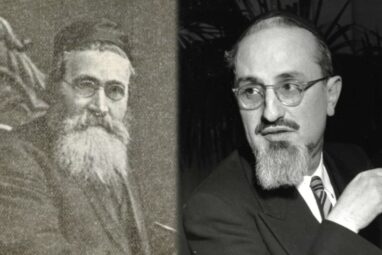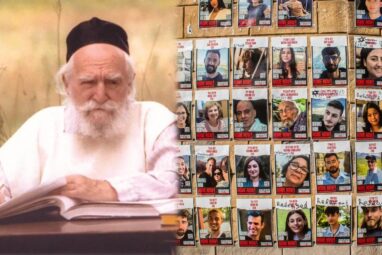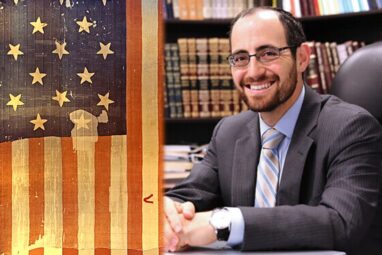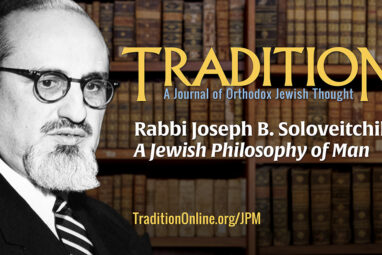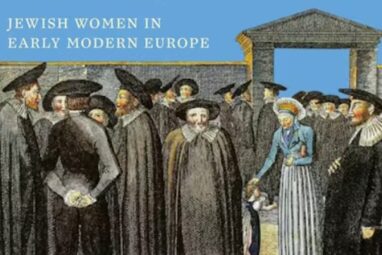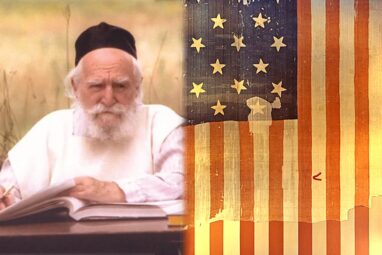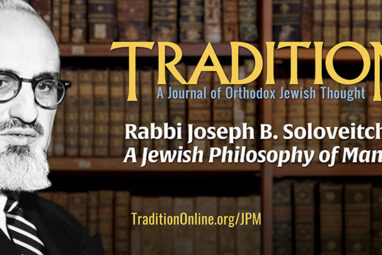February 9, 2026
Published by Tradition Online at February 9, 2026
How can Torah be eternal in a world of sovereignty, science, and modern politics? David Curwin contrasts two Religious Zionist readings of Maimonides’ ninth principle—by R. Joseph B. Soloveitchik and R. Chaim Hirschensohn—showing how one warns against concession to modernity, while the other warns against rigidity, and how each frames the challenge of halakhic continuity today.
February 5, 2026
Published by Tradition Online at February 5, 2026
In the aftermath of the final Israeli hostage being recovered, Moshe Kurtz shares a brief reflection based on how R. Moshe Feinstein addressed a hostage crisis from the 20th century.
February 4, 2026
Published by Tradition Online at February 4, 2026
As the rules-based world order erodes, Chaim Strauchler’s recent essay “New/Old American-Jewish Realities” asks what happens when those norms begin to fray, and suggests that antisemitism is not a bug but a feature of unrestrained power. He joins the Podcast to discuss the essay and some of the response it’s been garnering.
February 4, 2026
Published by Tradition Online at February 4, 2026
[…]
February 3, 2026
Published by Tradition Online at February 3, 2026
Ilana Kurshan reviews “A Woman is Responsible for Everything” by Debra Kaplan and Elisheva Carlebach (Princeton University Press)—a groundbreaking study of Jewish women in early modern Europe drawing on rich archival records and material culture. It reveals women as communal leaders, cultural producers, and religious actors long hidden in plain sight, and shows how literacy, print, and daily practice reshaped Jewish life from the inside out.
February 1, 2026
Published by Tradition Online at February 1, 2026
As the rules-based world order erodes, Chaim Strauchler argues that antisemitism is not a malfunction but a feature of unrestrained power. Reassessing R. Moshe Feinstein’s vision of America as a “nation of hesed,” he contends that Judaism has always prepared for moral loneliness—surviving not through kindness of strangers, but through internal discipline, law, and covenantal courage.
January 29, 2026
Published by Tradition Online at January 29, 2026
In this week’s The BEST, David Curwin reads the TV show “The Office” as a moral critique of good intentions corrupted by self-regard. Through Michael Scott, Torah narratives, and halakhic sources, Curwin explores “cringe” as ethical discomfort, insisting that responsibility lies in choice, not accidental outcomes.
January 28, 2026
Published by Tradition Online at January 28, 2026
[…]
January 27, 2026
Published by Tradition Online at January 27, 2026
Mark Gottlieb describes P.H. Brazier’s “A Hebraic Inkling” as, “a comprehensive study devoted to C.S. Lewis’ views on Jews and Judaism.” In responding, Yaakov Weinstein observes that Brazier’s work goes much further by attempting to define Hebraic Christianity, and questions how the famed author and apologist measures up.

